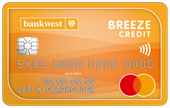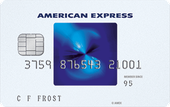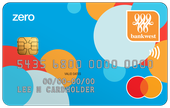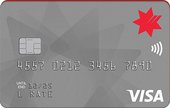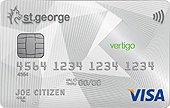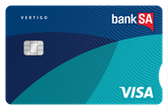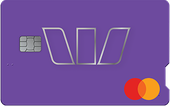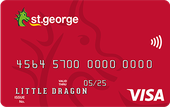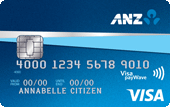
Credit card approval explainer
What is an easy approval credit card?
An easy approval credit card is a type of credit card designed to be more accessible than standard cards, often catering to individuals with limited credit history, lower income, a temporary visa, or those seeking a modest line of credit for budget management.
While these cards may have simpler eligibility requirements and lower credit limits, issuers still conduct necessary checks on income, employment, and credit history to assess creditworthiness.
The streamlined approval process and basic features help reduce the provider's risk, making approval easier for qualifying applicants, but do not eliminate the standard checks and balances required for responsible lending.

The factors that matter most
What can improve my chances of getting approved for a credit card?
Two primary factors that significantly influence your credit card approval odds are a solid credit history and a stable income. These two elements enhance your likelihood of securing a credit card because it is an unsecured form of credit, and financial institutions seek assurance that you can make the minimum monthly payments.
In Australia, credit card issuers must adhere to lending guidelines enforced by the Australian Securities and Investments Commission (ASIC). As per ASIC regulations, credit card companies and lenders are required to:
- Evaluate your application based on your ability to repay the credit limit within 3 years and
- Conduct inquiries about your financial circumstances before approving your credit application.
This is why card issuers assess your credit report when reviewing your application. Consequently, it is not possible to obtain a credit card without undergoing a credit check, and no card issuer can guarantee approval prior to you submitting an application.

Expert on credit card approval

David Boyd, co-founder of Credit Card Compare, explains:
"While no foolproof method guarantees credit card approval, satisfying a card's eligibility requirements enhances your chances of success. Generally, cards with more basic features tend to have fewer eligibility criteria compared to premium cards loaded with perks."

Low-barrier credit card options
Types of credit cards that may be easier to get approved for
Consider the following types of credit cards that may have more relaxed eligibility requirements:
- Low income credit cards: These cards are for individuals with a solid credit history and an annual income ranging from $15,000 to $35,000. When applying, you must submit proof of income, such as recent pay stubs and employer details.
- Low credit limit cards: If your income is on the lower side, consider cards with minimum credit limits starting around $500. A lower credit limit can help minimise the risk of debt and make it easier to fulfil the eligibility criteria.
- Low annual fee credit cards: Annual fees for credit cards vary, but those with low or no annual fees typically offer fewer additional features and may have lower income requirements.
- Low interest rate credit cards: These cards provide a low interest rate for purchases and usually come with fewer extras (like rewards or complimentary insurance) compared to premium cards. They are also likelier to have lower minimum income requirements, potentially making qualifying easier.
- No interest, flat fee cards: Instead of charging interest, these cards have a monthly fee and offer credit limits ranging from $1,000 to $3,000. Designed to compete with buy now, pay later services, their structured repayments and low credit limits can make them easier to apply for and get approved.
- Joint account cards: With a joint account credit card, you apply and share responsibility with another person. Your combined income and financial situation are evaluated during the application process, which could improve your chances of approval. However, only a limited number of banks offer joint account cards, and the application process may take longer.

Finding Australia's most accessible credit cards
What’s the easiest credit card to get in Australia?
Credit card approval typically depends on meeting the eligibility criteria set by the issuer, which usually includes having a good credit score and demonstrating the ability to repay the credit.
While it is difficult to pinpoint one specific card that is the easiest to get approved for, generally speaking, credit cards with low credit limits tend to be more accessible. This is especially true for young Australians or those with a limited credit history looking for their first credit card. These cards often come with lower minimum income requirements, making approval easier.
While these cards may lack premium features — they don't typically earn frequent flyer points or have travel benefits like airport lounge access — they could be easier to qualify for individuals with lower incomes or limited credit histories. Using one of these cards responsibly can help you build or improve your credit score, but it does take time. Responsible usage demonstrates to lenders that you can manage credit effectively, which can open the door to more favourable financial products in the future.
In addition to these types of cards, many issuers offer an instant decision on your credit card application. When available, banks typically respond within 60 seconds of submitting your application. They rely on automated systems to quickly assess your credit history, income, and other financial details. If you meet the card’s criteria, you’ll likely receive immediate approval.
However, it’s important to note that instant approval doesn’t guarantee final approval, even if you meet all the minimum criteria. Often, you may receive conditional approval, which means the issuer requires additional documentation before fully approving your application, such as proof of employment. Always ensure you meet the basic eligibility criteria and have all necessary paperwork ready before applying.

First steps to credit
Being realistic about what card to apply for
Sarah, 22, recently started her first full-time job and is eager to get a credit card. With a modest income and limited credit history, she wants a simple, low-cost card to manage her expenses. As she starts looking into her options, she encounters a range of credit cards, many with enticing rewards programs. But these cards also come with high annual fees and minimum income requirements that she doesn't quite meet.
For Sarah, applying for one of these higher-end cards is not practical. With her current income, she wouldn't be able to spend enough to justify the fees or fully utilise the rewards programs. And the strict eligibility criteria may make approval difficult, especially with her limited work experience and credit history.
Instead, Sarah decides to search for simpler, lower-fee cards designed for people in her situation. These cards typically offer lower credit limits, which may seem restrictive, but they also make it easier for first-time users like Sarah to qualify. A low-limit card helps keep her spending in check, reducing the risk of accumulating debt and ensuring she can manage her payments within her means.
She finds a card that offers no annual fee and comes with basic features. It doesn’t offer rewards or the perks she initially hoped for, but it’s an option that works for her budget and financial goals. While she won’t earn points, she’ll avoid the unnecessary fees that may come with a rewards-based card.
For Sarah, a no-frills card with a lower limit may not offer flashy benefits, but it allows her to keep costs low and learn how to use credit responsibly.

What you need to know before applying
Credit cards with guaranteed approval
In Australia, there's no such thing as a guaranteed approval credit card. Lenders are required by law to check if you can repay the credit before approving your application. This applies to everyone, regardless of their credit score. Lenders must look into your finances and confirm your ability to repay before giving you credit.
As for credit cards for bad credit, it is worth knowing that there’s no universal definition of bad credit across all lenders. If your credit score is low or if you have limited credit history, perhaps because you’re young or new to using credit, you may want to consider low-rate andlow-fee credit cards. These types of cards are often more accessible to first-time cardholders, as they help keep costs down while you learn to manage credit. Cards with low credit limits and minimal income requirements may also improve your chances of approval.
Remember, getting a credit card with bad credit isn’t impossible, but it can be more challenging. But it’s important to carefully consider whether a credit card is the right option for you, especially if your poor credit score stems from past financial difficulties or trouble managing your finances.
While a credit card, when used responsibly, can help you improve your cash flow and build your credit score over time, it’s not a solution for improving your overall financial situation or clearing existing debts. Make sure you fully assess your current financial standing before applying for additional credit, and ensure that taking on a credit card won’t worsen any financial issues.
